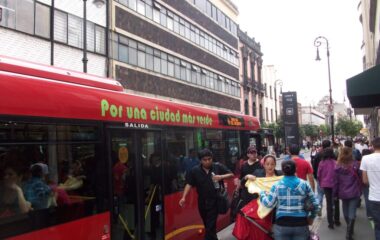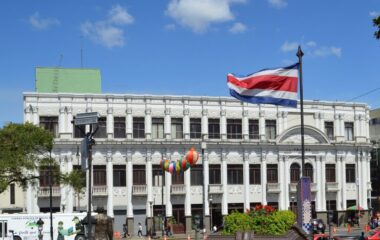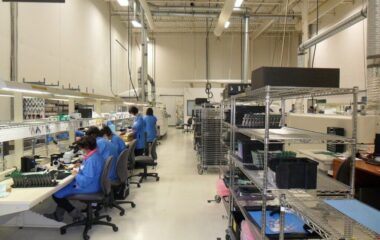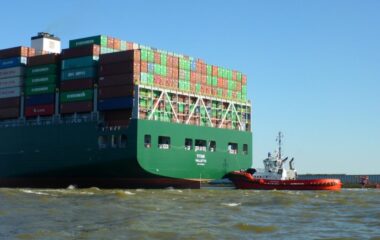
The private sector in El Salvador has recovered an average of 5,000 jobs per month
The impact of the Covid-19 pandemic on nations’ economies has, thus far, been unprecedented in scope. We have witnessed that throughout Latin America entrepreneurs continue to do their best to survive by modifying their business models and by changing their value propositions. However, these isolated efforts require a strategy focused on the promotion and growth of advanced industry in Latin America.

The service industry in Costa Rica expands
The impact of the Covid-19 pandemic on nations’ economies has, thus far, been unprecedented in scope. We have witnessed that throughout Latin America entrepreneurs continue to do their best to survive by modifying their business models and by changing their value propositions. However, these isolated efforts require a strategy focused on the promotion and growth of advanced industry in Latin America.

Seven Sectoral Investment Opportunities in El Salvador
The impact of the Covid-19 pandemic on nations’ economies has, thus far, been unprecedented in scope. We have witnessed that throughout Latin America entrepreneurs continue to do their best to survive by modifying their business models and by changing their value propositions. However, these isolated efforts require a strategy focused on the promotion and growth of advanced industry in Latin America.

The Mexican and Costa Rican economic recovery will depend on the US and China
The impact of the Covid-19 pandemic on nations’ economies has, thus far, been unprecedented in scope. We have witnessed that throughout Latin America entrepreneurs continue to do their best to survive by modifying their business models and by changing their value propositions. However, these isolated efforts require a strategy focused on the promotion and growth of advanced industry in Latin America.

Free zones benefit the Costa Rican economic model
The impact of the Covid-19 pandemic on nations’ economies has, thus far, been unprecedented in scope. We have witnessed that throughout Latin America entrepreneurs continue to do their best to survive by modifying their business models and by changing their value propositions. However, these isolated efforts require a strategy focused on the promotion and growth of advanced industry in Latin America.

The IMF and World Bank forecast positive Salvadoran economic growth in 2021
The impact of the Covid-19 pandemic on nations’ economies has, thus far, been unprecedented in scope. We have witnessed that throughout Latin America entrepreneurs continue to do their best to survive by modifying their business models and by changing their value propositions. However, these isolated efforts require a strategy focused on the promotion and growth of advanced industry in Latin America.

Intel to start assembly and testing operations in Costa Rica
The impact of the Covid-19 pandemic on nations’ economies has, thus far, been unprecedented in scope. We have witnessed that throughout Latin America entrepreneurs continue to do their best to survive by modifying their business models and by changing their value propositions. However, these isolated efforts require a strategy focused on the promotion and growth of advanced industry in Latin America.

Shared Service Centers in Latin America
The impact of the Covid-19 pandemic on nations’ economies has, thus far, been unprecedented in scope. We have witnessed that throughout Latin America entrepreneurs continue to do their best to survive by modifying their business models and by changing their value propositions. However, these isolated efforts require a strategy focused on the promotion and growth of advanced industry in Latin America.

What is the significance of the LEED Certification of the Greenpark Free Zone?
The impact of the Covid-19 pandemic on nations’ economies has, thus far, been unprecedented in scope. We have witnessed that throughout Latin America entrepreneurs continue to do their best to survive by modifying their business models and by changing their value propositions. However, these isolated efforts require a strategy focused on the promotion and growth of advanced industry in Latin America.

The formula for growing advanced industry in Latin America
The impact of the Covid-19 pandemic on nations’ economies has, thus far, been unprecedented in scope. We have witnessed that throughout Latin America entrepreneurs continue to do their best to survive by modifying their business models and by changing their value propositions. However, these isolated efforts require a strategy focused on the promotion and growth of advanced industry in Latin America.

Grupo Maritimo is the new Orient Overseas Container Line shipping agent in El Salvador
OOCL and the Central American Group member Grupo Maritimo are pleased to announce that the latter is Orient Overseas Container Line’s new shipping agent in El Salvador.

Grupo Maritimo is a member of Multiport
Over the course of the last twenty years, there has been a significant amount of foreign direct investment (FDI) in Central America. Much of this increase in capital inflows can be viewed as a response to the policies of economic liberalization that were widely enacted by the countries of the isthmus that began to be implemented during the late 1980s.

